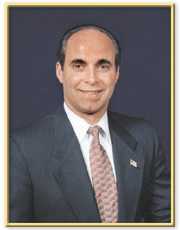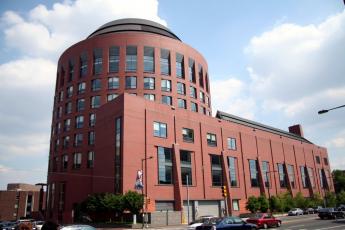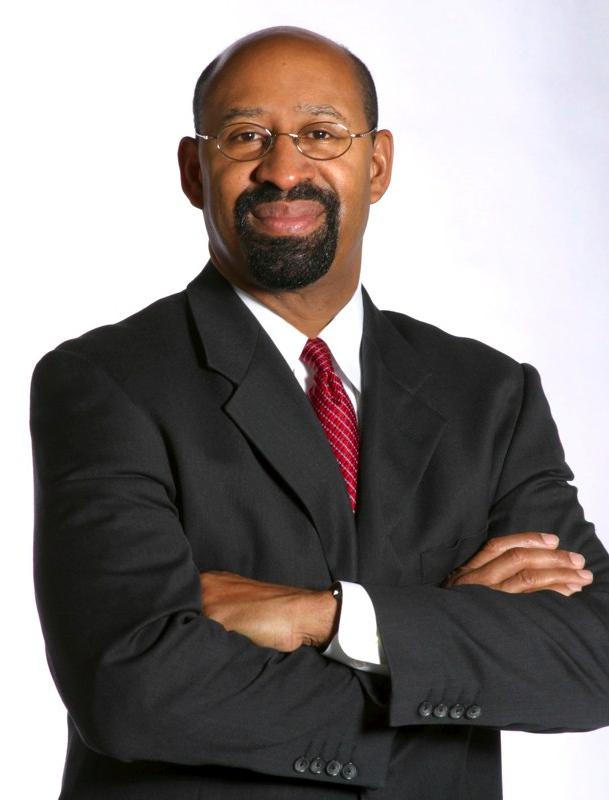Related Topics
Philadelphia Politics
Originally, politics had to do with the Proprietors, then the immigrants, then the King of England, then the establishment of the nation. Philadelphia first perfected the big-city political machine, which centers on bulk payments from utilities to the boss politician rather than small graft payments to individual office holders. More efficient that way.
Customs, Culture and Traditions
Abundant seafood made it easy to settle here. Agriculture takes longer.
Academia in the Philadelphia Region
Higher education is a source of pride, progress, and aggravation.
Philadelphia Economics
economics
Government Organization
Government Organization
Right Angle Club 2008
A report, to the year 2008 shareholders of the Right Angle Club of Philadelphia, by the outgoing president, Neale Bringhurst...
Commercial Academic Think Tank

|
| Stephen P. Mullin |
Stephen P. Mullin recently addressed the Right Angle Club of Philadelphia about assorted economic subjects; he is certainly qualified. He was once the only Republican in Mayor Rendell's cabinet, acting first as Finance Director and then as Commerce Director. At first, he doesn't appear extroverted enough to be a politician but quickly demonstrated that he knew the first names of more of the members of the club than the president did, so maybe he does have the innate talents of a politician. Urban political machines don't usually respond cordially to graduates of Exeter and the Wharton School of the University of Pennsylvania. A number of University professors are consultants to the firm, which offers statistical economic advice to the many law firms in town, to philanthropic organizations considering public-interest projects in the region, to government agencies faced with regulating unfamiliar activities, and very likely to anyone else willing to pay for the service of academics, statisticians and analysts. It certainly sounds like a service that governments and philanthropies need, and which the region needs to avail itself of. In a way, it is probably something the University needs, as well. A friend of mine is now retired, but at one time I commuted on the train with an academic administrator of the Wharton School, who was quite obviously disturbed by handing diplomas to students who promptly took jobs which paid those graduates more than he was paid himself. Obviously, such a system cannot persist very long without creating a brain drain, so income supplementation by commercial consulting is a necessary and valuable support for academics. There are, of course, probably some negative features as well.

|
| The Wharton School |
It is interesting to hear from Steve how Philadelphia can be variously described. We have, for example, significantly less foreign immigration than other cities. New York, by contrast, has net immigration of about 700,000 persons a year; such forces can quickly transform a city in a variety of ways. The bombing of West Philadelphia during the Goode Administration was news for a while, then vanished from the papers. But it had a shattering effect on Philadelphia commerce, leading to a period of 8 or 9 years when there was essentially no private investment in the city. Philadelphia indeed now needs to have its municipal bonds issued by the state bonding authority, because our own bond rating is so low the extra cost of municipal debt is a significant one. And there is the cost of invisible shifting of power to Harrisburg. An unexpected result is that sales and real estate transfer taxes escalated to make up for property taxes which they could not possibly be raised as much as inflation. Real estate was in big trouble; whether ingenious strategies like the 10-year tax abatement for a new property will be successful in rescuing the real estate industry, remains to be seen. New office towers have been built, but they drain off tenants from older office buildings. We're seeing a massive conversion of older office space into residential apartments, an apparently successful maneuver. But that drains the older residential areas, which leads to -- well, who knows what it will lead to, but it could be slums.

|
| Mayor Michael Nutter |
The traditional hostilities between Philadelphia and its neighbors can be defined in a new way, too. For a century, Philadelphia contributed more tax money to the rest of the state than it received in state services. But in the past 20 years, Philadelphia city has become a net importer of an annual billion dollars -- from the rest of the state. Two or three billion go to the schools, which the rest of the state regards as a deplorable waste in view of the quality of the product. And yet, the most hopeful feature of the situation is the vigor and ingenuity of the attempts being made to rescue the situation. In a certain sense, Mayor Nutter is the candidate of the Wharton School. He may well have some innovative ideas, and academic places like the Wharton School will surely suggest others. It remains to be seen whether Nutter can combine idealism with sufficient ruthlessness to make the city function. Cynical oldtimers will grumble that a mayor has to employ a moderate amount of deception and corruption in order to accomplish his mission. Maybe that overstates things, but it is very certain he must be tough. He's dealing with construction unions who will certainly be tough, and whose interest in sacrificing their own agendas in order to help the schools or street crime -- always fairly small -- is even further impaired by the econometrics that 70% of them live in the suburbs. We wish our new mayor all the best, since he seems smart enough to know what needs to be done, and is definitely smart enough not to drop any bombs on houses. He's smart enough to see that extra city revenue derived from gambling might permit the lowering of wage taxes, and hence an urban business recovery. But is he tenacious enough to stay in office long enough to achieve the balanced result; or will the forces of evil simply kick him out of office before wage taxes can be lowered and gambling discontinued? He won't break his promises, but will they break them for him? Beyond being competent, a city mayor needs to be tougher than the convivial but very mean friends he needs to associate with. He must, for example, decline to run for national office, the traditional way that city machines rid themselves of pointy-headed reformers.
Originally published: Wednesday, January 09, 2008; most-recently modified: Wednesday, May 15, 2019